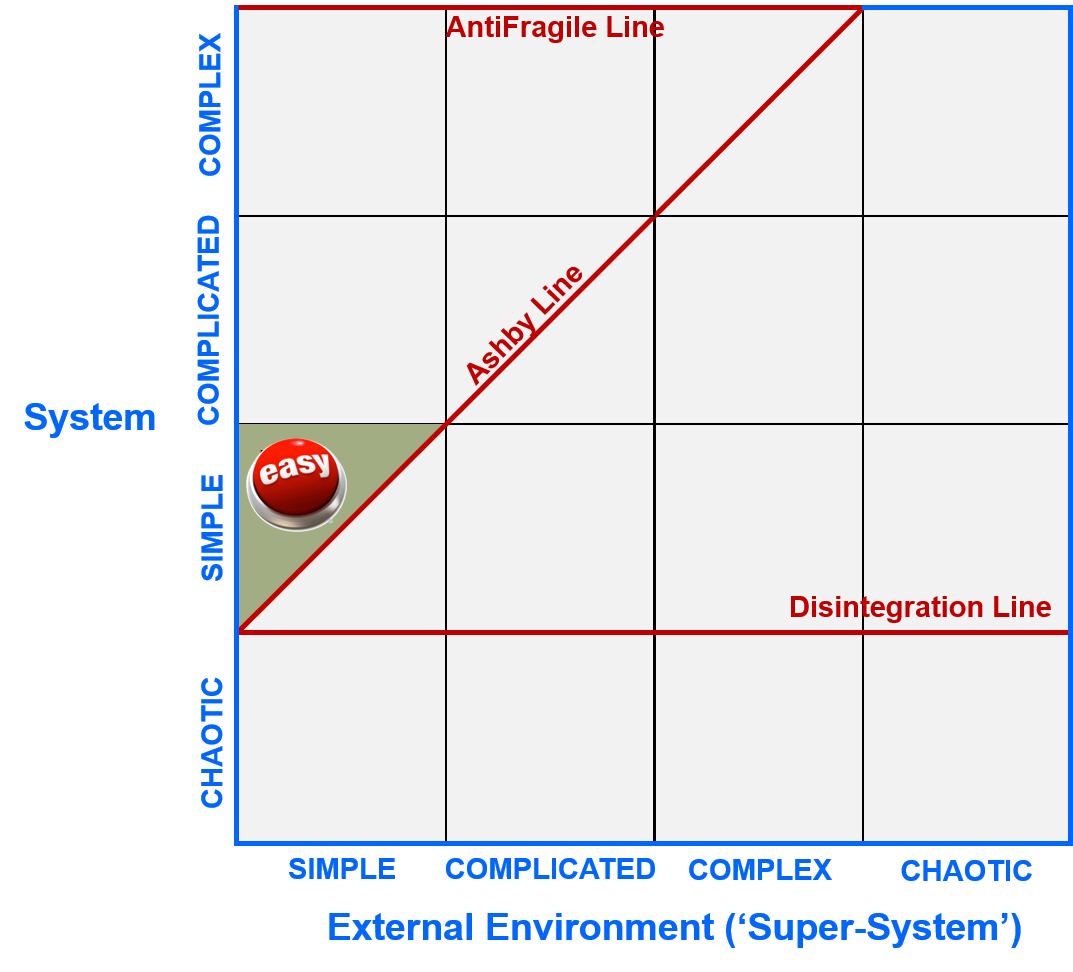Everyone’s looking for the ‘easy button’. It was the dominant theme of my 2019. Everywhere I went, its what people said they wanted. ‘Just make it easy for me.’ ‘If it’s difficult no-one will do it.’ ‘We’re all too busy, we need things to make our job easier.’
I get it. Sometimes, what people were asking for was possible to deliver. But mostly it wasn’t. As far as possible, those places where it wasn’t, we extricated ourselves from the discussion before there was an opportunity to do any damage. It’s nice to be able to say ‘no’ to a prospective client some times. Especially, if what they’re asking for looks set to deliver a short-term win that subsequently puts everyone on a long, slow slide down a slippery slope to mindless oblivion.
There’s only one type of situation where an ‘easy button’ has the possibility to be the right answer and that’s here:

Anywhere else on the Complexity Landscape and there is no such thing as easy anything. If there are two or more humans expecting to press the Easy Button, it won’t work. Humans are complex. Or rather, they are if we have a desire to treat them like humans. Easy Buttons are for robots. Or situations where humans need to mimic the behaviour of robots. Like pilots. George, the autopilot, is far safer than the best pilot. Or at least he is provided everything is happening normally. When everything is normal, the job of the co-pilot is basically to make sure the pilot doesn’t touch anything. In the same way, the job of the pilot is to make sure the co-pilot doesn’t touch anything.
The moment this kind of robotic normal doesn’t exist any more, we need to throw the easy button away. When things aren’t normal in the cockpit, we have a complex situation, no matter what the checklists might suggest otherwise. The sort of complex the world saw in the 1990s in what turned out to be a spate of Korean airliner crashes. Crashes in which the co-pilots were happier to die rather than tell their superior that he was making a mistake.
Easy buttons are great. Provided the system we’re designing is going to spend all of its time in the Easy Button zone. Easy Buttons mean maximum efficiency and no need for anyone to think. Some times this is the right strategy. Most times, we need to remember that when a situation shifts from simple-simple, it may be that the people involved may have spent so long not thinking, they’ve forgotten how to start again. Which kind of says – to me at least – that there probably aren’t that many Easy Button situations anywhere on the planet any more. Easy, in other words, is anything but.
